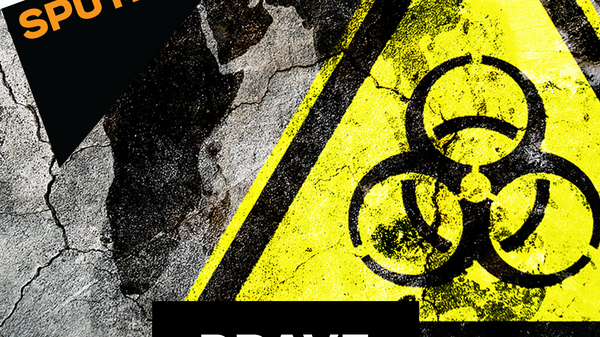Guy Eames, a business development consultant based in the UK and who spends about half his time in Russia, joins the program.
Guy says that at the moment, people in Britain are extremely negative towards Russia. "People are very suspicious, obviously most people have never been to Russia, but they have been fed various negative news, especially since 2014 with the Ukrainian situation and the annexation of Crimea. Since we had the Salisbury incidence, and President Putin's support of Assad in Syria, I think things have got considerable worse."
To a question of whether criticism is being levied against President Putin, or against Russians in general, Guy answers: "Russians in the UK are starting to feel a little less comfortable, probably a bit like some of the other Europeans here or some of our colonial or ex-colonial friends from the Caribbean….There was some talk by MPs about stopping educating Russian children here, which I think could also have negative consequences. I have heard of a couple of Russians who have been presenting topics on completely unrelated topics like energy efficiency or business development say that they been suddenly asked by members of their audiences: ‘what do you think about Putin?,' and that shows that we are starting to move into that territory….Even if you talk to Russians who came here because they ran away from Russia, they are now being tarred with same ‘nasty Russians' brush, I can see that flaring into conflicts and into unpleasant situations."
A conversation ensues as to why the Russian government is called: ‘The Putin Regime.' Guy says: "I think is very unhelpful when you start calling other elected governments regimes. I have also noticed that recently with ‘The Syrian regime.' It is the same idea as the tag ‘state' such as ‘state broadcaster', so RT is labelled the ‘Russian state broadcaster,' but for strange reasons the BBC doesn't have that tag added onto it."
"…There is a process of polarization going on." Guy continues. "Pretty much anybody who questions the western version of events is called delusional or a Kremlin troll or a ‘Putin's useful idiot'….At the moment I am trying to reposition myself and not mention Russia too much, because of these awkward conversations, which is quite disappointing really. It's very sad after spending years after trying to bring Russians and Brits together, to now see this situation. Fortunately, one thing that that I must say which is good, I have got a tremendously positive response when I have invited various people to speak in Russia this summer. I don't know whether these people travel a lot and haven't connected to all these stories…"
Host John Harrison comments that he always felt the BBC to be beyond doubt and the objective source of news, and for the first 10 years of living in Russia he would always stand up for it. "It was only when I started really thinking about it and studying politics, actually in the UK, did I come to realize that they are supporting only one of many different versions of the truth, and that in fact there may be different truths." Guy says: "I think we like to have a common story over here, like yourself, I also believed for many years the BBC, my dad worked for the BBC for many years, but I think this last year was really the turning point for me, to be honest. I think we are not alone in the number of people who have begun to question the BBC's impartiality as a state broadcaster. It may be as a repercussion of the Iraqi war, when I believe there was a crisis between the government and the director of the BBC, but certainly they don't really seem to be showing the other side. I have seen a couple of good programs like ‘Hard Talk' last week with Lavrov, where at least they gave the Russians the opportunity to air their views, but generally it seems to be pretty one-sided…."
To a final question for whether what is happening now could be a sort for preparation for a new Cold War?, Guy says: "I think that is really what is happening…. But interestingly enough that kind of relationship with Russia has been going on in cycles for at least the last few hundred years. It could be just one of those cycles, lasting for only a few years…"
The last Cold War lasted for 72 years.
We'd love to get your feedback at radio@sputniknews.com

